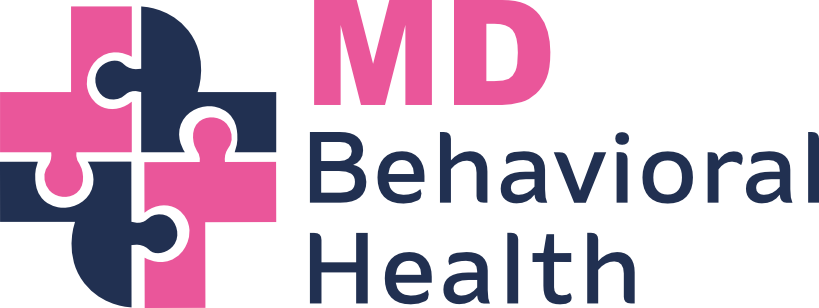For mental health, however, women have unique issues in addition to the standard psychiatric treatment. Hormonal fluctuation, reproductive problems, societal pressures, and life transitions all affect mental well-being.
Enter women’s psychiatry—a special care designed to address these special needs. As a patient struggling to find comprehension or a clinician seeking to deliver better care, it is essential to understand these nuances.
Why Women’s Psychiatry Exists?
The problem is this: there is no one-size-fits-all when it comes to mental illness. Women are more likely than men to be depressed, anxious, and so forth, and it’s not all biology. There are also social roles, cultural expectations, and the mental strain of dealing with many tasks.
Add in the hormonal rollercoaster of menstruation, pregnancy, the postpartum period, and menopause, and it’s no surprise that women’s psychiatric care is screaming for help.
These variables are overlooked at the expense of misdiagnosis or misguided treatment. A postpartum depression woman, for instance, may be told that she’s stressed out or tired. Specialized treatment, however, peeks beneath the surface, searching for patterns associated with the reproductive cycle and life stages.
Prevalent Mental Health Disorders Among Women
So, then, what are some of the most prevalent conditions that affect women’s behavioral health? The following are the ones most frequently topping the list:
1. Depression and Anxiety
These are the most common. Women are about two times more likely than men to suffer from major depressive disorder. Anxiety tends to co-occur with depression, and the two are mutually reinforcing in a cycle that does not seem to end.
2. Perinatal and Postpartum Disorders
Pregnancy and the months following the baby can be great—but anxious, depressive, and mood-disordered too. These disorders go untreated because new moms don’t want to admit they’re having a problem.
3. PMDD (Premenstrual Dysphoric Disorder)
An exaggerated form of PMS, really. Not irritability, but extreme mood swings that disrupt life. PMDD diagnosis and treatment take more than a suggestion for lifestyle modification—it takes psychiatric care.
4. Trauma and PTSD
Women have a higher prevalence of some traumas, such as domestic violence or rape, as well. These can have long-term mental health consequences, so trauma-informed care is critical.
5. Eating Disorders
Anorexia, bulimia, and binge-eating disorders typically develop during adolescence and may continue on into adulthood if left untreated. They are complicated disorders that need special treatment regimens.
The Place of Women’s Mental Health Counseling
Treatment is more than medication. Women’s mental health counseling is a critical component of assisting patients through struggles. Counseling offers a relaxed setting to share emotional struggles, identify triggers, and work through coping mechanisms.
Cognitive-behavioral therapy (CBT), interpersonal therapy (IPT), and mindfulness-based therapy are most likely to be of assistance to women who struggle with stress, anxiety, and mood disorders.
But this is the twist: counseling also makes patients feel listened to. Women consistently complain of being ignored in the healthcare setting, especially if their concerns are hormone- or reproductive-based. Counseling bridges that gap, validating experience, and heading towards resolution.
What Providers Need to Know?
If you are a practitioner, women’s psychiatry is not merely scribbling down the right prescription. It’s about listening, questioning, and understanding how mental health intersects with the life cycle.
For instance, antidepressant therapy during pregnancy is all about juggling the mother’s and the baby’s health with care. Likewise, mood swings during menopause may require a different approach than depression treatment.
Providers must also be attuned to cultural concerns. Women of various backgrounds will probably have specific stressors—immigration concerns, caregiver responsibilities, stigma associated with mental illness—that affect diagnosis and compliance with treatment.
Breaking the Stigma
Here’s the one thing we can’t deny: stigma is a powerful obstacle. The majority of women feel they have to “do it all” and never seek help. They worry about being judged, losing their job, or being considered “unstable.” This keeps them away from receiving women’s psychiatric health care until they are seriously ill.
The most important thing is getting used to talking about mental health. When patients feel secure being honest and being heard, everything changes. Patients must feel comfortable coming forward for help—therapy, medication, or a combination of the two.
Conclusion
If you’re a company, you ought to put money into women’s intellectual health education. Establish a community of assets—therapists, guide organizations, reproductive professionals—in order that your sufferers can receive integrative care.
Commit to Prioritizing Mental Health Whether you search for ladies’ intellectual health treatment for yourself or want to enhance treatment for your patients, proper care is the best thing that subjects.
At Maryland Behavioral Health, our psychiatric team specializes in women’s psychiatry and provides proof-primarily based care specifically designed to meet your needs. Call us now to book an appointment and start improving your mental fitness.
